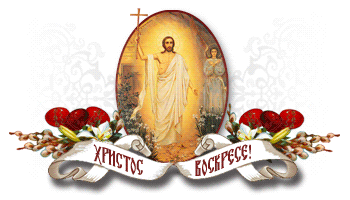
ORENBURG, RUSSIA: May 4, 2017
Metropolitan Veniamin of Orenburg and Saraktash and Archbishop Mark of Berlin and Germany Open an Exhibition on Martyr Alexander of Munich
 On April 29, 2017, the History Museum in Orenburg, Russia, opened an exhibit titled “Alexander Schmorell. The German Resistance With a Russian Soul.” Participating in the opening were His Eminence Veniamin of Orenburg and Saraktash and Archbishop Mark of Berlin and Germany, Vice President of the Russian Orthodox Church Outside of Russia. On April 29, 2017, the History Museum in Orenburg, Russia, opened an exhibit titled “Alexander Schmorell. The German Resistance With a Russian Soul.” Participating in the opening were His Eminence Veniamin of Orenburg and Saraktash and Archbishop Mark of Berlin and Germany, Vice President of the Russian Orthodox Church Outside of Russia.
The exposition was prepared by the museum jointly with the Orenburg “Eurasia” Benevolent Foundation, and kicks off the 100th anniversary of the birth of the son of Orenburg, the heroic anti-fascist and Christian martyr Alexander Schmorell. He had organized and driven the work of the German youth group “White Rose,” for which he was executed by guillotine by the Nazis on July 13, 1943.
Also attending the opening were Vice Governor Pavel Vasilievich Samsonov, who is also the Vice President of the Orenburg Oblast Department of Social Policy; Vice Governor Vera Irikovna Bashirova, Vice President of the Orenburg Department of Internal Policy; Tatiana Borisovna Reznitskaya, Head of the Orenburg Department of Culture and Art, and IV Khramov, President of the Orenburg “Eurasia” Benevolent Foundation.
A delegation from Germany was also in attendance, including relatives of the classmate of St Alexander, Christoph Probst, who participated in the White Rose Movement, who had also been executed in February of the same year, and the Nora Tekh, Cultural Attache at the Consul General of Germany in Ekaterinburg.
Mr Samsonov opened the event by noting: “The podvig of Alexander and his friends demonstrates how a person and like-minded associates can fight an entire political system. This should serve as an example to us all! Only by uniting can we resist evil and injustice!”
Ms Bashirova added: “I hope that this exhibition will be attended by young people, so that they can understand what heroism is, the meaning of self-sacrifice, serving the ideals of peace, goodness and love.”
Ms Reznitskaya also said, “This new exposition, dedicated to Alexander Schmorell and his companions is very important for our city and the entire oblast of Orenburg. It will support the infusion of patriotism in our youth, it will awaken their interest in the Great War of the Fatherland, and finally, will help establish historical truth in the… struggle against fascism.”
Speaking next was Metropolitan Veniamin, who noted, “The opening of this exhibition on Holy Martyr Alexander of Munich is but a first step in a series of projects devoted to the hundredth anniversary of the birth of this holy man of God, who has become the heavenly intercessor of land of Orenburg, and we are very happy that a delegation, headed by Archbishop Mark, has come here from Germany. Today and tomorrow, we will prayerfully bless this celebration of Marty Alexander by performing divine services, during which we will pray to St Alexander for the well-being and flourishing of our two nations, and for strengthening peace between them.”
Archbishop Mark then spoke: “Holy Martyr Alexander showed how a young person should act in the face of evil, global evil. But he was not only a war hero but a link which unites our two peoples, two nations, and in this regard he serves Orthodox Christianity, for it is the faith of Alexander and our faith as well.”
Ms Tekh stressed: “Thanks to Alexander Schmorell, many people—notably citizens of Russia, will see that during the period of national socialism in Germany, there were also people who thirsted for freedom and fought for it.”
Mr Khramov added: “I would like to thank everyone who participated in organizing this event. Alexander Schmorell, in truth, always united people in the struggle for the ideals of good and justice, and today we gathered to honor the memory of this remarkable person, our native son. Alexander has once again brought us together.”
The Director of the History Museum, Elena Sergeevna Mishina then concluded with an outline of how the exhibit was organized. The show included previously-unknown documents from the Schmorell family, including the metrical-book birth registry of Alexander from the Orenburg Oblast State Archives.
Also, the relatives of Christoph Probst gave the museum of an inscribed copy of Alexander Schmorell, Christoph Probst: Gesammelte Briefe [“Alexander Schmorell, Christoph Probst: Correspondence”].

|